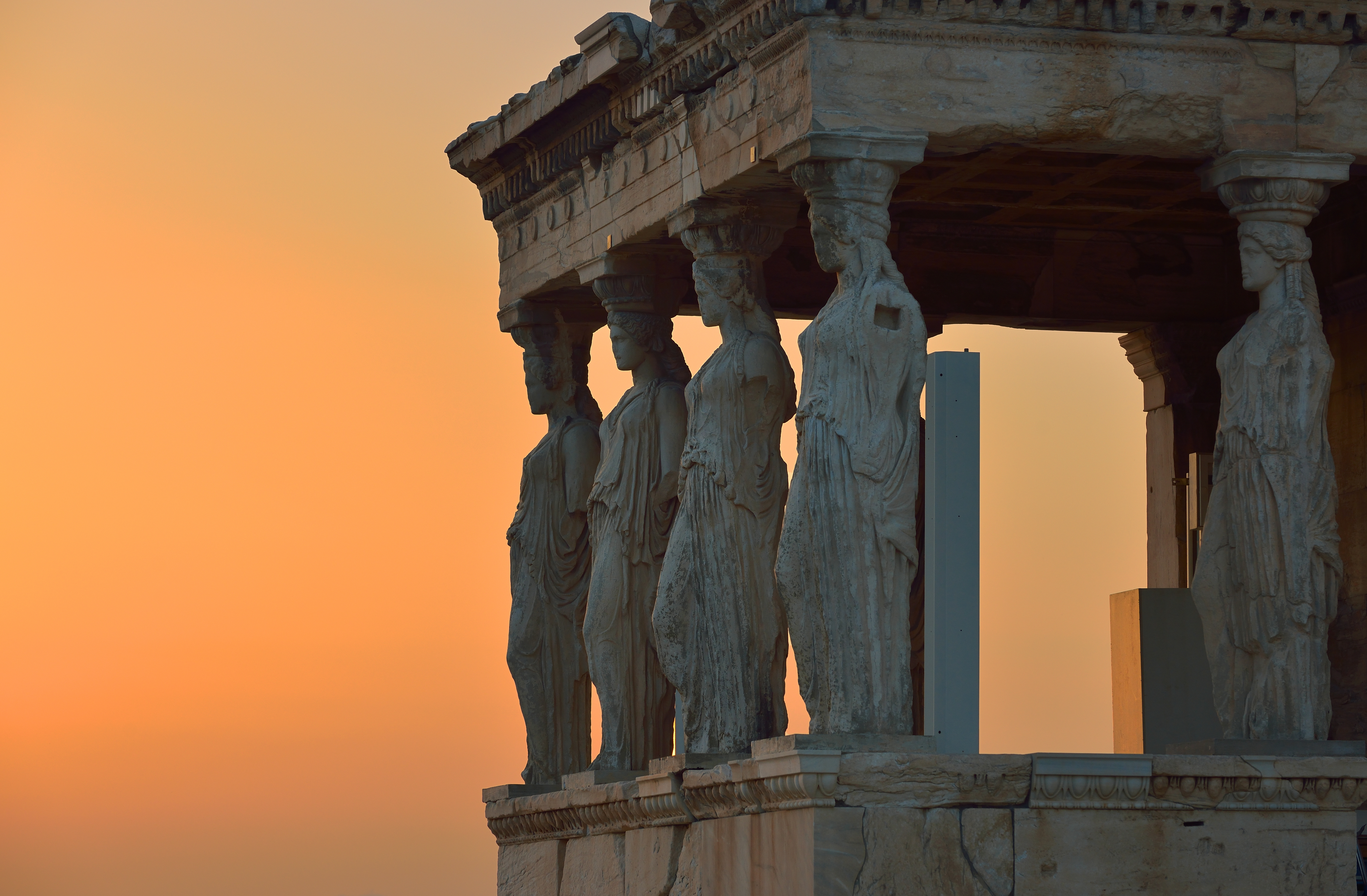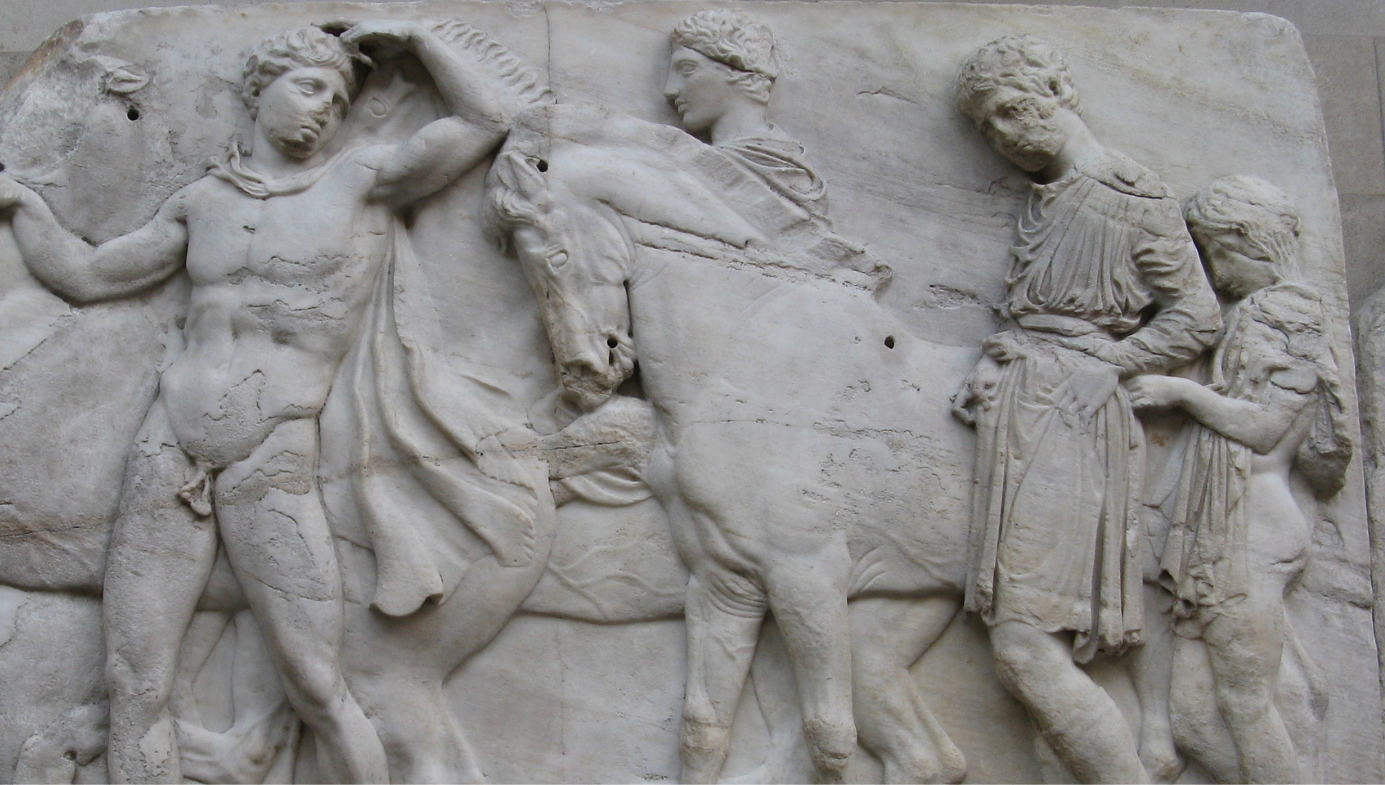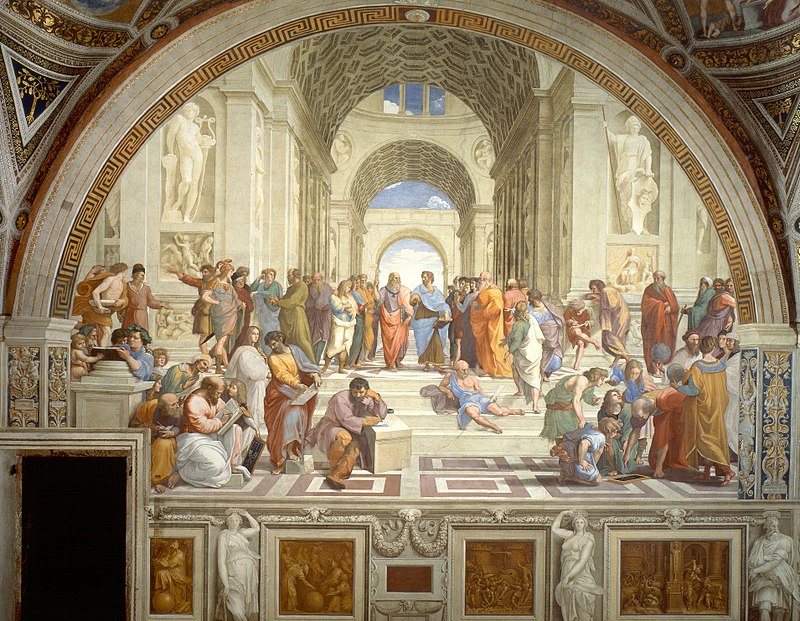classics
Is Western Civilization a Thing?
Appiah is wrong to pretend that distinct civilizations were never a thing.

This is part two of a four-part series on the classics. Part three will be published tomorrow.
Is Western Civilization even a thing? That may seem like an odd question, but it’s one that anyone who talks about Western Civilization these days will eventually have to face because a lot of intellectuals claim that it isn’t. “The West,” to them, is nothing more than a mirage, or (to put it in classical terms) a chimera. As anarchist activist and anthropologist David Graeber puts it, “There never was a West.” Cultural theorist Kwame Anthony Appiah is equally forthright, declaring in a Guardian essay that “There is no such thing as Western Civilization.”
One problem for such thinkers is that the West has no clear boundaries. Is Russia part of the West, and, if so, how much of it? Is Turkey? What about modern Japan—or, for that matter, ancient Persia? Even historians who find the idea of the West useful seem to have trouble pinning it down. Ian Morris, for example, in his bestseller Why the West Rules…For Now, talks about a “Western core” that starts in Mesopotamia, but then moves on to Greece, Rome, and Western Europe, before leapfrogging across the Atlantic and landing in America.
Another problem is that whatever boundary we do draw around the West quickly turns out to be porous. The West was never completely cut out from the outside world, economically or culturally. Europe was rarely completely disconnected from trade networks that stretched southward over the Sahara or eastwards along the Silk Road. Even in the Middle Ages, the Catholic philosopher Thomas Aquinas engaged with the arguments of Muslim thinkers like Averroes.
A final issue that is said to affect the idea of Western Civilization is that it puts a single, simple label on something that’s enormously complicated and full of variation. As Appiah puts it, the concept of Western Civilization would have us believe that “the Eurovision song contest, the cutouts of Matisse, the dialogues of Plato are all parts of a larger whole.” But is there really a single phenomenon that Aristotle and Eminem, McDonald’s and second-wave feminism, Darwinism and rococo, are all part of?
All three of these arguments aim to show that the very idea of the West is incoherent. But they all rely on a few closely-related fallacies. The first fallacy is that a concept is incoherent if it describes something whose boundaries are ill-defined. The second is that something which interacts with other things can’t have any existence or identity of its own. And the third is that a phenomenon that’s complex and multi-faceted thereby ceases to be any sort of recognizable or coherent phenomenon at all.
If any of these assumptions were true, then a lot of the concepts we use on a day to day basis would be just as incoherent as the idea of the West. Is art an incoherent concept because people disagree on what belongs in that category? Is France a non-starter because France has always interacted with other countries? The world undoubtedly contains more complexity and variety than the West, and yet there don’t seem to be many articles telling us that it’s a bankrupt concept.
As the example of France suggests, the arguments used to disqualify the concept of Western Civilisation would disqualify many terms that are geographical or cultural in nature. Take “the Islamic world,” for example. It’s boundaries seem just as fuzzy as the West’s. Is Russia part of the Islamic world, and, if so, how much of it? What about India? The Islamic world has constantly interacted with other cultures throughout its history. It also refers to an enormously complex and diverse area of the globe. And yet it is still useful as a term, and we don’t seem to have too much trouble when thinking about the Islamic world as a concept.
Ordinarily, of course, we don’t have too much trouble using terms like “the West” either. And that’s the case even though people might disagree about whether a particular country counts as Western or not. It’s even the case when we are well aware that the West didn’t go through history sealed off from the outside world. And it’s even the case when we realize that the West is a big, messy phenomenon that contains a lot of different things inside of it.
Now, the objections to the idea of the West that we’ve looked at so far might seem pretty silly. Maybe they are, and if so we might wonder whether the whole argument about “the West” being an incoherent concept has more to do with an animus against the West and its role in history than with anything else. In any case, let’s look now at a slightly stronger argument that Appiah offers in support of his thesis that Western Civilization isn’t a thing.
In its fullest form, Appiah’s objection to a concept that encompasses “Aquinas and Kant” as well as “Beyoncé and Burger King” isn’t just that it brings together things that probably aren’t related. It’s that bringing those things together under the heading “Western Civilization” is a form of what he calls “organicism,” that is, “a vision of culture not as a loose assemblage of disparate fragments but as an organic unity, each component, like the organs in a body, carefully adapted to occupy a particular place, each part essential to the functioning of the whole.”
Much of what Appiah says about organicism is salutary. For Appiah, for example, organicism restricts choice, since it might lead people to believe they can only move within their own cultural tradition—the West, say, or Islam. In fact, as Appiah rightly says, “no western essence is there to stop a New Yorker of any ancestry taking up Islam” if that’s what he wants to do.
But it’s not clear that anyone who talks about the West is an organicist, or that if we dislike organicism (which maybe we should) we have to conclude that Western Civilization doesn’t really exist. If we go back to Appiah’s definition of organicism, we’ll see that it actually goes well beyond beliefs of the sort that “Western Civilization is a thing.” It involves thinking that the different elements of Western Civilization somehow function together as an organic whole, the way different parts of the body do.

But it’s surely possible to think that the West and Western Civilization are useful concepts without believing that Bach relates to Shakespeare anything like the way my heart does to my circulatory system. In fact, I do think that concepts like Western Civilization are useful, mainly because they point to an important reality about the way global culture developed; and at the same time I agree with Appiah that seeing it as some sort of unified system that everyone western has to serve would be bizarre and pernicious. How so?
Let’s begin with a simple point about natural languages. Words tend to gain and remain in currency because people find them useful, and one of the main ways in which people find words useful is in reflecting what they think is some aspect of reality. If terms like “the West” and “Western Civilization” are still around, that suggests that people find that they can still come in handy. But, of course, it may be that these are the kind of terms that point towards things that we now think never really existed, like “ghost.” Is “the West” just a term for something that was never really there?
Obviously, the West was never really there in the straightforward sense that the Colossus of Rhodes was really there. But it still denotes an area (with fuzzy boundaries, to be sure) in which Western Civilization developed and flourished. That brings us to the question of what Western Civilization is, and my best answer to that is that it’s the name for a distinct cluster of cultural traditions. Cultural traditions can be imagined here, somewhat deflatingly, as a series of threads on Twitter. One thinker or artist replies to another, and then they get further replies from others, all more or less following, or at least developing, the same theme.

To continue the analogy, if you looked at global cultural history as a kind of Twittersphere, what you would see is that there were only a few main clusters of threads for most of recorded history. It’s simply the way things turned out that Aquinas replies to Aristotle much more than he replies to Confucius, and that Linji replies to Buddha much more than he replies to Jesus. The critics of Western Civilization sometimes write as though if you selected a work of Western literature at random you’d be just as likely to find a reference to Lao-Tze as to Homer, and that’s simply not the case.
Why? It’s not the case because of the natural and physical constraints our species grew up with. It’s conceivable that, had we evolved on a much smaller planet (or if we were much larger), or if we’d evolved telepathy, then human culture wouldn’t have clustered into distinct civilizations. Instead, for most of human history most people were severely constrained in who they could talk to and whose books they could read simply because of the slow rate at which technology developed and because of the distances that separated them. The result was the emergence of different cultural spheres with a distinctive cluster of conversations.

The fact that the world developed in this way isn’t simply a matter of historical interest. It also has to have an impact on the way we approach world culture when we try to understand it ourselves, or teach it to others. Now, it may be interesting to compare disparate threads of human culture. But if you’re trying to help someone read and understand Paradise Lost, it’ll obviously be more helpful to have them read the Aeneid first than to have them read the I Ching. That’s not to say anything against the I Ching; it’s simply part of a different conversation.
Appiah is right that it makes no sense today to limit ourselves to individual traditions just for the sake of it. But he’s wrong that that somehow means that we need to pretend that distinct civilizations were never a thing. Whether we like it or not, they were; and if we want to understand them we have to continue to recognize that fact. That means working through the cluster of conversations that made up Confucianism or Chinese legalism; and it also means continuing to guide students through the many different threads that together made up Western Civilization. Because Western Civilization, in that sense, is undoubtedly a thing.






